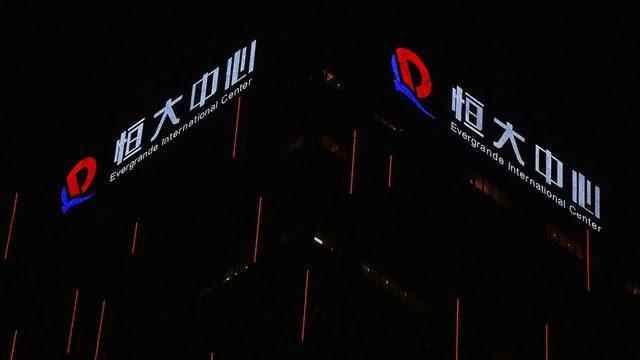At the beginning of 2021, the financial crisis of Evergrande, one of China’s largest real estate companies, and its debt of approximately 300 billion dollars to foreign investors started to attract attention worldwide.
Evergrande entered a debt restructuring process with the Chinese government after it announced that it would not be able to pay off its debt to overseas investors and bondholders in full. It was also reported that some of the personal assets of the company founder may be sold in this process.
“While the current situation is not transparent, no one is surprised when we talk to our contacts in China,” says Vinesh Motwani, director of financial research firm Silk Road Research.
Some have compared Evergrande’s situation to the bankruptcy of Lehman Brothers in 2008, which sparked the global financial crisis.
But over the past few months, it has become clear that the Beijing administration has handled the situation very differently from Washington.
Slow**c**imminent threat
Motwani, who worked as a researcher in the USA in 2008, explained that unlike Lehman Brothers, everyone was aware of and predicted the Evergrande crisis.
About a year ago, the Chinese government introduced a debt threshold policy called the ‘three red lines’ that would limit the borrowing of some real estate companies.
The ‘three red lines’ policy was created to control the years of uncontrolled borrowing in the real estate sector, which the People’s Bank of China described as “irresponsible”.
Evergrande was known to be one of the biggest culprits in uncontrolled borrowing, so experts speculated that such a crisis had long loomed.
Rory Green, Head of China and Asia Region Research at consulting firm TS Lombard, described the Evergrande crisis as a slowly but clearly approaching threat.
“There’s been talk of warnings about Evergrande for a long time, so bondholders shouldn’t be surprised if the company defaults,” Green said.
This crisis is Lehman Brothers**‘of why is it different from bankruptcy?**
One of the biggest differences between the Evergrande crisis and the Lehman Brothers bankruptcy was that the US government had to prepare a special bill in 2008 to intervene in the situation. The Chinese government, on the other hand, does not have such a problem and can intervene at any time.
By giving control of the country’s real estate market to state banks, the Chinese government can track which companies fail to meet their obligations. The US government did not have such a foresight during the 2008 crisis.
The Chinese government is also much more selective than the United States in its support for companies that are struggling financially. The US government had saved the world’s largest banks from bankruptcy in 2008 with financial support.
Alicia Garcia Herrero, Chief Economist for the Asia Pacific Region at investment bank Natixis, likened the Chinese government to “a doctor who does surgery on a tumor and calculates what to save.”
It is important for the Chinese government that the daily operations of Evergrande continue, that home construction is not disrupted, that real estate buyers are not adversely affected, and that confidence in the real estate sector is not damaged.
“The government also needs to check if the patient’s heart is beating during surgery, which is people’s perception of the real estate industry,” said Herrero.
Vinesh Motwani thinks that China’s selective approach has reduced the impact of the crisis on the real estate market for now.
“House prices are still increasing year-on-year. The monthly decline is not very high,” Motwani says.
However, there are also concerns that potential buyers may stop buying a home if housing prices continue to decline.
What will happen to Evergrande?
Experts say the restructuring of Evergrande could take months or even years, with the Chinese government trying to control the negative effects of the crisis on the world economy, as in the Lehman Brothers bankruptcy.
Rory Green said that the restructuring process of Chinese insurance company Anbang, which closed in 2020, has been going on for two years and is not yet finished, and continued:
“Evergrande is a much larger company so this process can take many years. If you ask me, it has gotten through the worst period financially. The company will most likely be split into separate divisions and regional banks will be responsible for each division, which will be important for the stability of the industry and the economy.”
What do foreign investors think?
As Evergrande’s creditors abroad are generally wealthy investors, the disruption in its payments has not yet caused the economic crisis, but some researchers are concerned about the impact on China’s real estate sector and the reputation of the sector.
“This has certainly shaken foreign investors’ confidence in China’s offshore real estate bonds,” said Jackson Chan, of financial markets research platform Bondsupermart.
Perhaps the most important effect of the Evergrande crisis is that it has made it very difficult for Chinese real estate developers to borrow from foreign investors.
Declining access to affordable foreign investment opportunities is a major threat to the real estate industry in China.
From now on, it will be watched how the Chinese government will keep the balance between the real estate policies implemented and the threats facing the industry.
